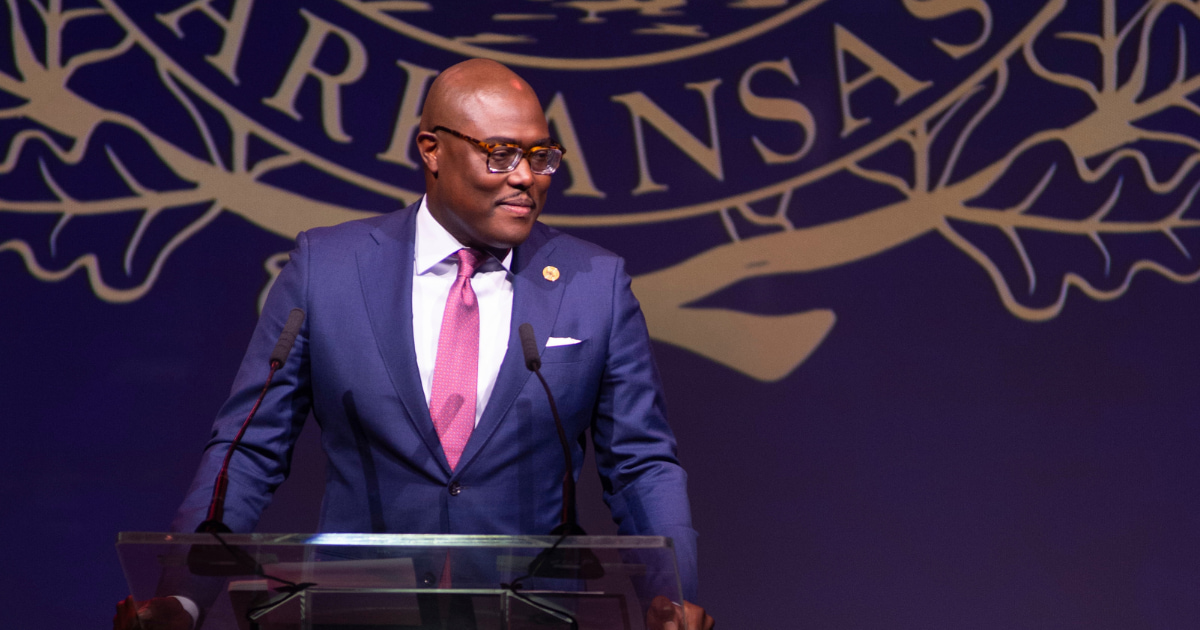Little Rock voters will decide whether to accept or reject a one-cent hike in city sales tax on Nov. 5 after the Little Rock Board of Directors voted on Tuesday to send Mayor Frank Scott’s proposal before voters.
The ordinances that make up the tax package passed with eight yes votes and one “present vote” from At-Large Director Joan Adcock at a special called meeting of the city board before its regularly scheduled agenda-setting meeting.
The sales tax would go towards what Scott calls the “four Ps”: public safety, public infrastructure, parks and recreation, and the Port of Little Rock. Scott said at a July 16 city board meeting the tax is projected to rake in $650 million over the next 10 years if it passes.
At the July 16 meeting, Scott announced that would come with a $2 million contingency fund to cover unexpected expenses the city might incur. At the beginning of Tuesday’s meeting, the board amended the tax plan to lower the contingency fund to $1 million. If tax collections during a given year were greater than what’s needed to fund Scott’s plan, the excess would be added to the contingency fund.
If the contingency fund reaches $1 million, further excess revenue would go to a “special city infrastructure fund, which would have a division for capital tax receipts and a division for operation tax receipts,” Scott said at the July 16 meeting. Any allocation of these funds would be subject to approval from the city board and a to-be-established oversight committee.
The proposed increase would bring the sales tax rate in Little Rock from 8.625% to 9.625%. Of the current tax rate, 1% is levied by the county, 1.125% goes to Little Rock and the remaining 6.5% is taken by the state.
The proposed 1% increase for the city would be split into a three-eighth cent tax, which would go toward “general operational purposes,” and a five-eighth cent tax that would go toward “general capital purposes,” according to the ordinances.
Little Rock residents at the meeting spoke both for and against the sales tax increase.
Many residents told the board that the sales tax would disproportionately affect low-income residents and families and criticized the increase in police funding that the tax package would bring. They urged the board to amend the proposal to reallocate the funds from police to community programs that address the root causes of crime.
Cynthia Martinez, a Little Rock resident, criticized the decision to hold the vote during a special called meeting at 4 p.m., when many people are still at work and can’t attend.
Scott has been dead set on passing a 1% sales tax increase for years. The mayor and city board placed a proposal on the ballot in a 2021 special election, but voters overwhelmingly rejected it, 62%-38%.
Ward 5 Director Lance Hines served as a director for an opposition group in 2021 called “Responsible Taxation for Little Rock,” though Hines told THV11 on May 2 that he’s “cautiously optimistic” about the tax this time around.
A separate group with leaders from the grassroots tenant’s rights group Arkansas Community Organizations, “VOTE NO SALES TAX SEPTEMBER 14,” also opposed the 2021 tax proposal.
Scott tried again in 2023, but the proposal received organized pushback and skepticism from the city board and the mayor ultimately decided to delay any campaign until 2024.
If voters accept the tax increase, it would take effect on Jan. 1 and remain in place until Dec. 31, 2034.
Near the end of the meeting, At-Large Director Antwan Phillips announced that the city board would finally be returning to its meeting chambers in City Hall next week, marking the end of a years-long renovation that saw several delays and budget increases.Ward 2 Director Ken Richardson, who hasn’t attended a city board meeting since May 14, was absent again; he has now missed eight voting meetings and eight agenda-setting meetings not counting Tuesday’s special-called meeting as of July 30, with no official statement yet on the reason for his absence.
*Correction: An earlier version of this post did not mention the amendment lowering the tax’s contingency fund from $2 million to $1 million. It has been updated to reflect that change.

